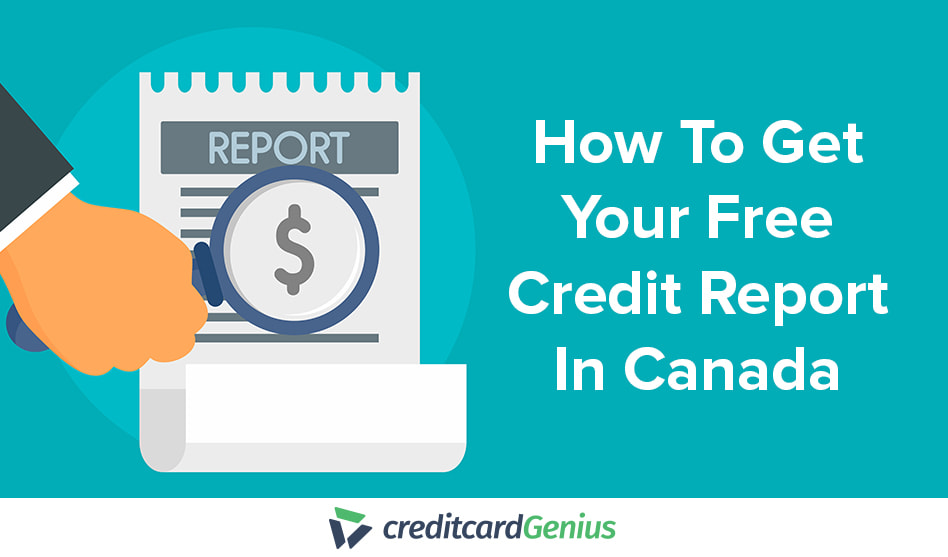Your credit report is more than just a tool for checking identity theft—it's a key factor in major financial decisions. Whether you're applying for a mortgage, car loan, or a credit card, your credit report affects your approval chances and interest rates. Errors on your report can even lead to denied credit. To stay on top of your financial health, it's important to check your report regularly. The good news? You can access your credit report for free. Here's how to do it in Canada.
Key Takeaways
- With identity theft being an issue in our world, it's important to check your credit report once in a while.
- There are several ways to get your credit report for free, from the bureaus themselves, having the right bank account, and from 3rd party sites.
- Each option gives you access to one of your credit reports from either TransUnion or Equifax.
Never miss an amazing deal again + get our bonus 250+ page eBook for FREE. Join 50,000 other Canadians who receive our weekly newsletter – learn more.
How to get your free credit report in Canada
There are quite a few places where you can get your credit score for free. Take a look at the credit monitoring bureaus, third parties, and banks where you can get your free report.
Equifax
Equifax is one of the 2 major credit bureaus in Canada. As such, they're legally obligated to give you access to your credit file only once yearly. Equifax goes beyond that, however. They'll give you access to an updated score every month, plus access to your credit score.
Just head to the Equifax website and log in or register. This gives you instant access to your credit report, but if you prefer a paper copy, you can request your report by mail. Be aware that it takes 10 to 20 days for delivery.
Equifax also offers various credit monitoring services for a monthly fee if that interests you.
TransUnion
TransUnion is the other major credit bureau in Canada. They'll also give you free access to your credit report, as they're required to by law.
TransUnion gives you a few options for getting your credit report: by phone, in person at one of their offices, by mail, or on their website.
However, unlike Equifax, TransUnion won't give you access to your credit score. They're not required to give this as part of a consumer disclosure.
Borrowell
There are a few third-party sites that offer access to both your credit file and score. While these sites don't charge you anything for access, they have many affiliate relationships. They'll send you emails and notifications to sign up for one of these products.
Borrowell is one of the more popular companies. They'll give you an updated report and score weekly. Of course, you'll also get bombarded with emails and notifications trying to get you to sign-up for products like credit cards, loans, mortgages, and insurance.
Credit Karma
Credit Karma is another third-party site (like Borrowell) offering free access to your TransUnion credit report and score. Credit Karma is part of the Intuit family, which you may know best as the owner of Quickbooks.
Credit Karma will update your credit score and file once per week for you to review. Like the other third-party sites mentioned here, be prepared for them to try to get you to sign up for one of their affiliate products.
Your bank
If you have a bank account from a big bank, they also offer free access to your credit score and report. All 5 big banks (BMO, CIBC, RBC, Scotiabank, and TD) use CreditView, which provides your TransUnion report.
You can access your CreditView report on your bank’s website or mobile app. We should also mention that they update the scores around once a month.
How often should you check your credit report?
The Financial Consumer Agency of Canada recommends spacing out your credit report requests so you can keep tabs on your credit.
Specifically, they advise getting your credit report from 1 bureau and then waiting 6 months before requesting your report from the other bureau. This way, you check your credit report at least twice a year and get info from both bureaus.
What to do if you find an error on your credit report
Errors on your credit report might not seem like a big deal, but lenders look at your report carefully if you’re applying for credit. Those errors could damage your score and might even be a sign that someone is trying to steal your identity, so correcting them as soon as you spot them is important.
Here are some of the errors to look for:
- Incorrect personal details
- Mistakes with your credit card or loan accounts
- Accounts listed that you didn’t open
- Negative information that should have fallen off of your report
If you find errors, contact Experian and TransUnion to dispute them. You can submit a dispute by completing an online form describing what’s inaccurate. Then, the credit monitoring bureau will investigate the error and update your report.
It typically takes a few weeks for the bureaus to investigate errors. They should contact you once they have a result.
FAQ
What is the safest site to get a free credit report?
Generally, your information should be secure if you’re requesting your report from a credit monitoring bureau or your bank. Although you might be hesitant to use a third-party company to get your report, these companies have just as good (if not better) site security.
Which banks offer a free credit score in Canada?
BMO, CIBC, RBC, Scotiabank, and TD all give you free web or mobile access to CreditView, which provides your TransUnion report.
Is 700 a bad credit score in Canada?
No! 700 is considered a good credit score in Canada. Scores range from 300 to 900, so if you’re in the 700 range, you’re doing great.
creditcardGenius is the only tool that compares 126+ features of 228 Canadian credit cards using math-based ratings and rankings that respond to your needs, instantly. Take our quiz and see which of Canada's 228 cards is for you.









































Comments
Leave a comment
Required fields are marked with *. Your email address will not be published.
Showing 4 comments